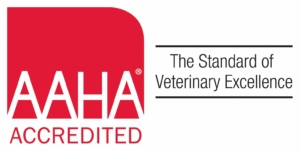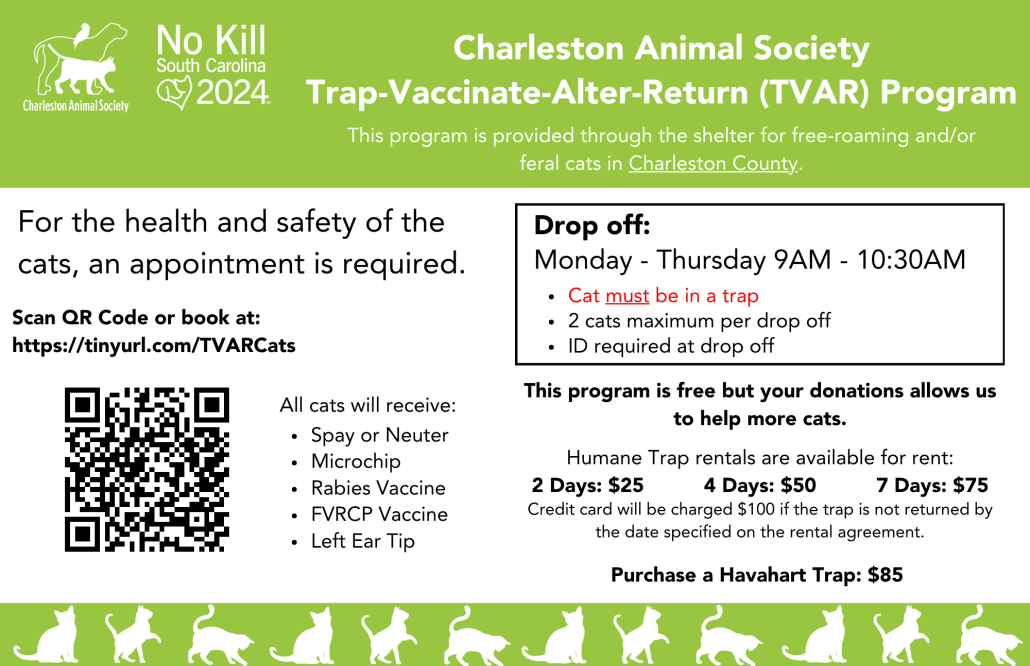Post surgery questions – What is normal, what is not?
What should I look for after surgery?
Spays and Neuters are both very safe surgeries; however, as with all surgery, complications can occur. You should contact us or your local emergency clinic immediately if you notice any of the following:
- Labored breathing
- Pale gums
- Depression
- Unsteady gait
- Excessive discharge or bleeding from the incision
- Difficulty urinating or defecating (although please keep in mind your pet may not defecate for 24-36 hours post surgery)
Do I need to keep my pets separated from each other after surgery?
Yes, animals are capable of sexual activity for 2-3 weeks after surgery and females are receptive to males during this time. A pregnancy could not occur, but the act of mating would be very uncomfortable for the pet and could cause post surgery complications like dehiscence, pain, infection and bleeding.
Is it normal for my pet to be groggy the evening of surgery?
It is normal for your pet to not be 100% the night of surgery as he/she is still metabolizing the anesthetic and pain medications. Allow your pet some time to rest and offer a small amount of food.
Is it normal for my pet to not eat dinner the night of surgery?
It is normal for your pet to not eat the night of and even the morning after surgery. If she/he is not eating, vomiting, and lethargic for 24 hours after surgery, please call 843-556-SPAY or your local emergency clinic.
We ask that you offer a small meal and water the evening of surgery and return to normal meals the day after. Do not change your pet’s diet at this time, since this diet change could mask post surgical complications. As always, do not give junk food, table scraps, milk or any other people food to your animals.
Is it normal for my pet to cough after surgery?
Your pet may have a slight cough for a few days after surgery due to intubation. If this cough continues or your pet has ocular and nasal discharge, please see your veterinarian.
Is it normal for the incision site to be red?
Minimal redness and swelling at the surgery site should resolve within several days, if they persist longer, please contact us. Female pets should not have discharge from the incision at any time.
Male pets may have some discharge from the incision for a couple days after surgery but this discharge should be dark red, clear, or brownish-red. Any discharge that is green, white, yellow, or red and jelly-like should prompt a call to the veterinarian for a checkup.
If you notice excessive discharge please call us or your local emergency clinic.
Is it normal to have a lump at the incision site?
A small bump is normal at the incision site since there are 3 layers of suture material under and within the skin. It is not normal for this bump to be very painful, red or have discharge. If you are concerned about the appearance of the incision please call 843-556-SPAY to set up an appointment and/or email a photo to [email protected].
Is it normal for my animal to vomit after surgery?
It can be, especially if they eat a large meal after surgery. The anesthetic and pain medications can cause some transient nausea that should not last very long. If your pet vomits more than once in 24 hours, is acting lethargic, and not eating please call 843-556-SPAY or your local emergency clinic.
Is it normal for my dog not to defecate the day after surgery?
Anesthetic and pain medications can reduce gastrointestinal motility for a short period of time. It is normal for your pet not to defecate for 24-36 hours after surgery. If your pet is trying to defecate and is having trouble, please schedule a checkup.
My pet keeps licking his/her incision?
Have your pet wear an Elizabethan collar (cone) at all times to reduce incisional complications. Licking his/her incision can result in infection, bleeding and even dehiscence of the incision. Dehiscence means the incision has come open, this will increase surgery healing time and may result in the need for an emergency surgery.
Do I have to keep my pet inside after surgery?
Yes, It is imperative to follow our post surgery discharge instructions, which is to keep the pet indoors for 7-10 days post surgery. If the animal is left outside, the risk of complications/infection is much greater. Dogs can be walked on a leash to relieve themselves. No running, jumping, playing, swimming or other strenuous activity for 7-10 days.
Spay and Neuter Feral cat discharges
- Keep the cat in the trap/carrier in which they were placed after surgery, and keep the door closed at all times.
- Keep the cat indoors in a quiet, well-ventilated, temperature-controlled area for 24 hours after surgery unless otherwise advised by a veterinarian. Ideally, female cats should be observed for 48 hours post surgery, but the observation can occur after release. Feral cats may become dehydrated if kept confined for too long in a trap or carrier.
- Check in with the cat periodically. Monitor the cat for bleeding, difficulty breathing, lethargy or dullness, and/or vomiting or loss of appetite, although not all community cats will eat overnight, due to stress.
- Male cats may have some areas of blood in their carrier/trap but if larger than a quarter then please seek veterinary care.
- Do not be alarmed if the cat does not eat immediately. All cats, especially feral cats, may not eat after surgery due to stress.
- If concerns arise, please call 843-556-SPAY or your local emergency clinic.
- Mt. Pleasant and Summerville call Veterinary Specialty Care at 843-216-7554.
- Mt. Pleasant Location: 985 Johnnie Dodds Blvd. Mount Pleasant, SC
- Summerville Location: 319 E. 3rd North St. Summerville, SC
- West Ashley call Charleston Veterinary Referral Center at 843-614-8387
- 3484 Shelby Ray Court, Charleston SC
- Keep the trap/carrier covered with a sheet or light blanket during the recovery period (but not too heavy; you don’t want the cat to get too hot). Do not handle the cat or put your fingers in the trap since these cats are fearful and could cause injury to you if scared.
- When feeding the cat, place canned food on a thin flat plastic lid or container with a little water around it. Do not be concerned if the cat does not eat immediately. Be careful when opening the carrier or trap so that the cat does not escape. Keep hands out of the trap, and always relock the trap door. You can always pour food and water through the wire cage if there are already bowls inside the trap.
- The cat does not need to return to Sam Greer Spay and Neuter clinic for suture removal, because absorbable/dissolvable sutures were used.
- Provide fresh food, water and shelter (especially important in summer and winter months) as always.
Charleston Animal Society Finder Pick up Discharge
Thank you for participating in our TVAR (Trap, Vaccinate, Alter, and Return) program at Charleston Animal Society. TVAR is a humane and effective way of reducing community cat populations. The key to TVAR is to return the cat back to exactly where you found it. Cats adapt to their own territory and can live safely in their chosen environment.
If brought in early enough in the day, the cat will have surgery in the afternoon. These cats are given injectable anesthetic and pain medications. They are fed a small meal after surgery and kept overnight in a safe trap/carrier at Charleston Animal Society. Unless otherwise advised, you can pick up the cat the next day after surgery.
Please follow the below instructions:
- Keep the cat in the trap/carrier in which they were placed after surgery, and keep the door closed at all times until you are ready to release the cat.
- Keep the trap/carrier covered with a sheet or light blanket during transport (but not too heavy; you don’t want the cat to get too hot).
- Do not handle the cat or put your fingers in the trap since these cats are fearful and could cause injury to you if scared.
- You do not need to feed the cat as they were given food overnight.
- The cat does not need to return to Sam Greer Spay and Neuter clinic for suture removal, because absorbable/dissolvable sutures were used.
- If you are the caretaker, provide fresh food, water and shelter (especially important in summer and winter months) as always. Monitor the cat(s) for bleeding, difficulty breathing, lethargy or dullness, and/or vomiting or loss of appetite, although not all community cats will eat in a trap, due to stress.
-
- Male cats may have some areas of blood in their carrier/trap but if larger than a quarter then please seek veterinary care.
- Do not be alarmed if the cat does not eat immediately. All cats, especially feral cats, may not eat after surgery due to stress.
- Release the cat in its known habitat in a safe area where it can become re-acclimated without having to cross a busy street right away. Some cats may take a few minutes to become comfortable again in their environment. If possible in summer, perform the release in the early morning or later afternoon to avoid the heat of the day adding to the disorientation of a newly released cat.
- If concerns arise, please call 843-747-4849 or your local emergency clinic.
- Mt. Pleasant and Summerville call Veterinary Specialty Care at 843-216-7554.
- Mt. Pleasant Location: 985 Johnnie Dodds Blvd. Mount Pleasant, SC
- Summerville Location: 319 E. 3rd North St. Summerville, SC
- West Ashley call Charleston Veterinary Referral Center at 843-614-8387
- 3484 Shelby Ray Court, Charleston SC




